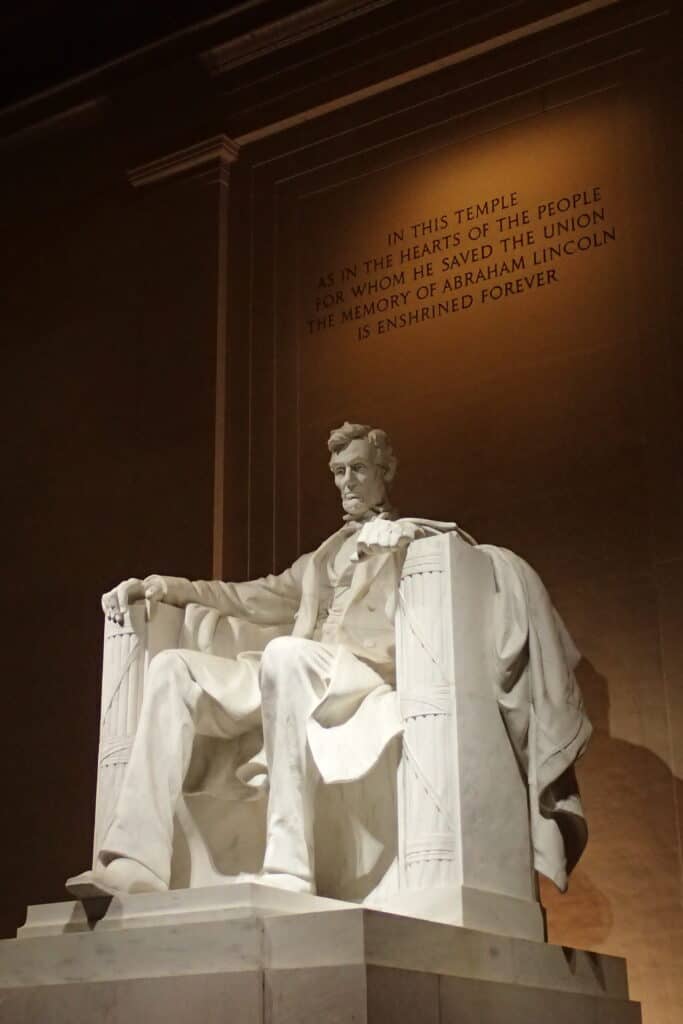Lincoln leans back in his chair staring past the Reflecting Pool at the Washington Monument. I don’t know how it was possible to capture so much pain, sorrow, and strength in one block of white marble.
Lincoln carried not only the weight of a fractured country on his shoulders, but the burden of devastating loss in his personal life—the death of three of his four children, his own struggle with depression, and the mental health challenges of his wife Mary. Yet, tonight, his face glowing in soft white light, he also appears attentive, listening, caring. I suppose any visitor projects his or her own needs and beliefs onto the memorial to this great man.
The first time I saw Lincoln I was eleven years old, visiting my father’s family in Baltimore. We spent a day whisking around the Capitol. Raised in Alaska, I may as well have been visiting a foreign country. We were that far geographically and culturally from the center of our government. On that sweltering day, tears pooled in my eyes as I gazed up at Lincoln. For the first time I felt that Lincoln was real, the stories I read in my school books were real, and I belonged to the history of our country.
Now, on my fourth visit to Lincoln, it’s after nine o’clock on a July evening. Cooler, but no less crowded than in the daylight. I hoped to avoid the crowds and have Lincoln to myself, to meditate on his words chiseled in the walls beside him, and pray for a healing of the sharp divisions in our country.
But Lincoln does not belong to me. People stream up and down the steep steps, circulate around the atrium like bees in a hive, and snap selfies at his feet. Women with long flowing robes and headscarves, school groups in matching tee shirts, young men with drooping pants, ladies in spandex, their ample bosoms and derrieres seeming to test the limits of fabric, babies in arms and strollers, fathers hoisting toddlers on their shoulders, mothers reading the Gettysburg address to their children. People from every state and country, with skin color in every hue from alabaster to dark chocolate. A cacophony of languages and laughter, questions and recitations, baby cries and squeals.
All free to honor the man who kept the Union together, who believed in the equality of everyone here. I try to hold back, but tears pool in my eyes and stream down my cheeks, just as they do every time I visit the memorial. This is the essence of the United States of America. All of us here together, reading Lincoln’s words, gazing at his weathered face, feeling his presence after so many years, so much pain, so much division. We need him. Now, more than ever.

